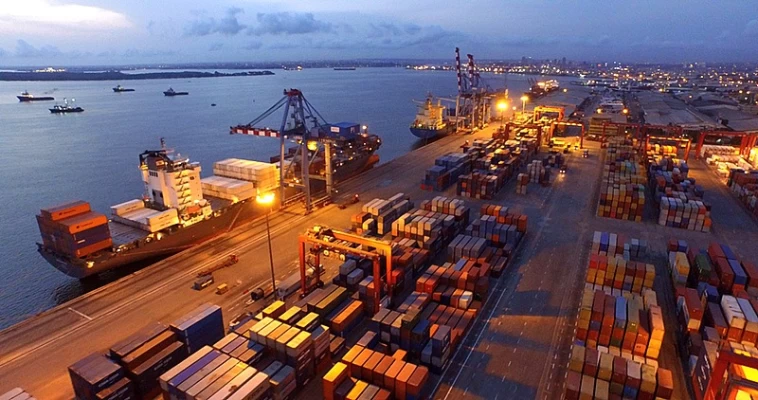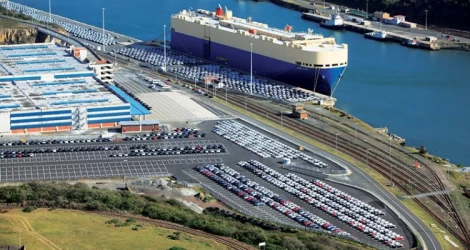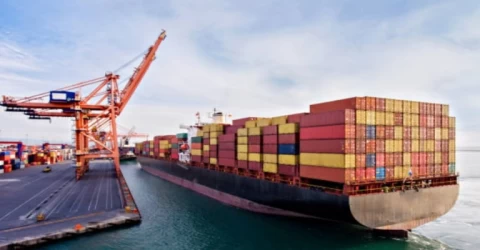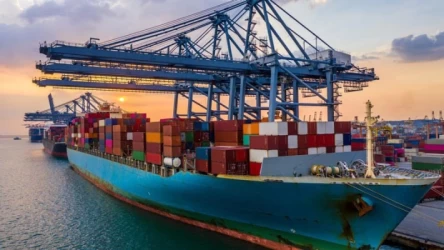Sea Freight in Abidjan Port
The Port of Abidjan, located in Côte d’Ivoire, is one of the largest and most modern ports in West Africa. It plays a crucial role in the region’s economy, serving as a major hub for sea freight and international trade. This article provides an in-depth look at the port’s facilities, operations, and significance in global shipping.
Historical Background
The Port of Abidjan was established in 1951 with the construction of the Vridi Canal, which connected the Ébrié Lagoon to the Atlantic Ocean. This development transformed Abidjan into a key maritime gateway for West Africa, facilitating the export of agricultural products and other goods.
Strategic Location
Abidjan’s strategic location on the Gulf of Guinea makes it an ideal transshipment point for goods destined for landlocked countries such as Mali, Burkina Faso, and Niger. The port’s proximity to major shipping routes enhances its accessibility and efficiency.
Port Facilities and Infrastructure
The Port of Abidjan boasts state-of-the-art facilities designed to handle a wide range of cargo types. Key features include:
- Container Terminals: The port has multiple container terminals equipped with modern cranes and automated systems, enabling efficient handling of containerized cargo. The recent addition of a second container terminal has increased the port’s capacity to approximately 2.5 million TEUs annually.
- Bulk Cargo Terminals: Specialized terminals handle bulk commodities such as cocoa, coffee, and rubber. These terminals are equipped with advanced loading and unloading equipment to ensure smooth operations.
- Fishing Port: Abidjan is a significant fishing port, producing around 600,000 tonnes of seafood annually. The fishing terminal includes processing plants, ice factories, and extensive storage facilities.
- Warehousing and Storage: The port offers extensive warehousing and storage facilities, including bonded warehouses for goods awaiting customs clearance. These facilities ensure the safe and secure storage of various cargo types.
Operational Efficiency
The Port of Abidjan is renowned for its operational efficiency, which is achieved through the use of advanced technology and streamlined processes. Key aspects include:
- Automated Systems: The port utilizes automated systems for container handling, cargo tracking, and customs clearance. These systems reduce processing times and enhance overall efficiency.
- 24/7 Operations: The port operates around the clock, ensuring continuous movement of goods and minimizing delays. This is particularly important for time-sensitive cargo such as perishables.
- Skilled Workforce: A workforce of approximately 55,000 individuals ensures the smooth operation of the port. The port authority invests in regular training and development programs to maintain high standards of service.
Economic Impact
The Port of Abidjan significantly contributes to the economy of Côte d’Ivoire and the broader West African region. Key economic impacts include:
- Trade Facilitation: The port facilitates the import and export of a wide range of goods, including agricultural products, manufactured goods, and raw materials. This supports local industries and promotes economic growth.
- Employment: The port provides direct and indirect employment opportunities for thousands of individuals, contributing to the livelihoods of many families.
- Revenue Generation: The port generates substantial revenue through port fees, customs duties, and other charges. This revenue is reinvested in infrastructure development and public services.
Challenges and Future Prospects
Despite its many strengths, the Port of Abidjan faces several challenges, including:
- Congestion: High cargo volumes can lead to congestion, affecting the efficiency of port operations. Ongoing infrastructure upgrades aim to address this issue.
- Security: Ensuring the security of cargo and personnel is a priority. The port authority collaborates with international agencies to implement robust security measures.
- Environmental Impact: The port is committed to minimizing its environmental footprint through initiatives such as waste management and pollution control.
Looking ahead, the Port of Abidjan is poised for continued growth and development. Planned expansions and modernization projects will further enhance its capacity and efficiency, solidifying its position as a leading maritime hub in West Africa.
Conclusion
The Port of Abidjan is a vital component of the global sea freight network, playing a key role in facilitating trade and economic development in West Africa. With its modern facilities, efficient operations, and strategic location, the port is well-positioned to meet the growing demands of international shipping and contribute to the region’s prosperity.
If you have any specific questions or need further details, feel free to ask!











